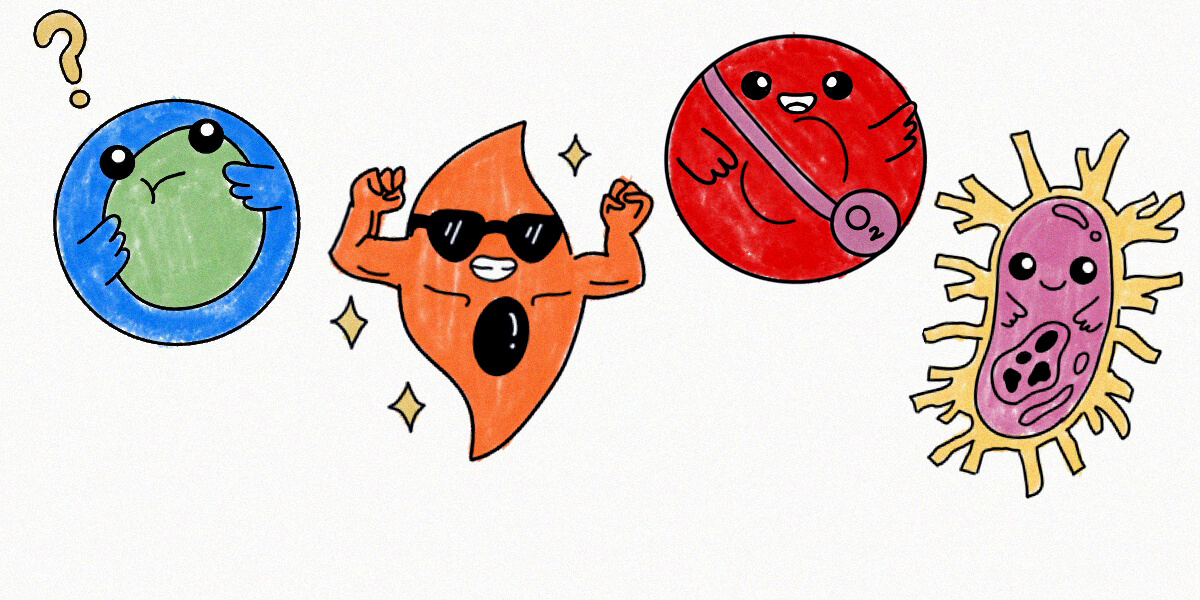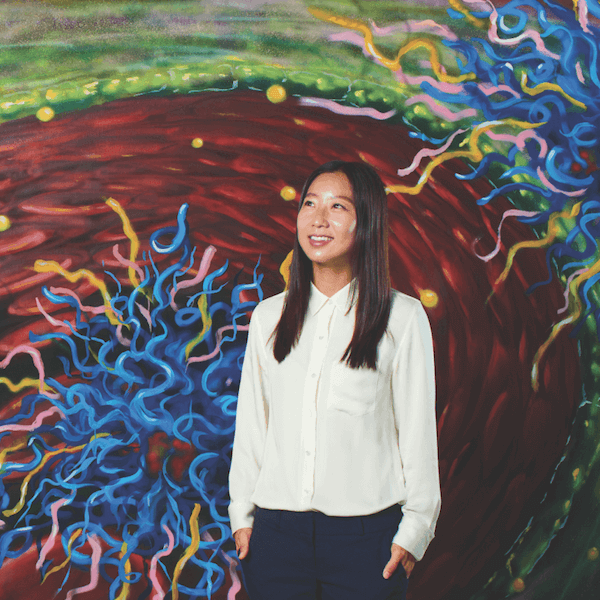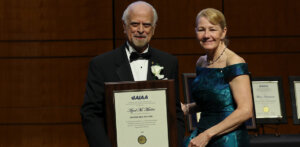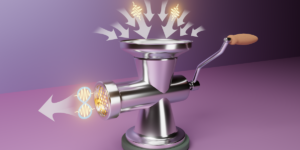
Illustrations from A Little Cell Biology, the new coloring book from Eun Ji Chung and Jacqueline Joy Masehi-Lano.
Eun Ji Chung is used to tough readers. An expert in the field of nanomedicine and cell biology, her research appears in the world’s most prestigious peer-reviewed journals. But her latest publication is aimed at an even more discerning audience – preschoolers and K-12 students.
Chung, the USC Viterbi Dr. Karl Jacob Jr. and Karl Jacob III Early Career Chair and Assistant Professor of Biomedical Engineering, Chemical Engineering and Materials Science, Surgery and Medicine, has just launched her new coloring book, A Little Cell Biology, with proceeds to benefit COVID-19 relief efforts.

Eun Ji Chung
Created with the help of her former student, Jacqueline Joy Masehi-Lano, the coloring and activity book has been released via paperback and e-book, allowing parents to reprint pages multiple times for their young, burgeoning science-fans.
The book began as a personal project for Chung after she noticed a lack of fun science activity books for young kids.
“I have a five-year-old and a one-year-old, so I was looking for science books that offered passive learning; something allowing children to learn and have fun at the same time, rather than trying something too hard at that age,” Chung said. “I didn’t see anything about cell biology, so that got me started.”
Chung reached out to Masehi-Lano, who had worked with her on various outreach projects for kids while she was a master’s student and research technician in the Chung Lab. It turned out Masehi-Lano had quite a talent for illustration.
The pair collaborated online via Google Drive, building their ideas and compiling pages and activities for the book. Then, just as they were preparing to publish, COVID-19 hit and Chung realized her creation was perfect for homeschooling parents, desperate for learning activities to keep their housebound kids occupied and away from screens. As the COVID crisis started to build in the US, Chung also saw that the book was an ideal opportunity for a fundraising effort for the CDC.
The book features a range of cute cartoon cell characters that children can color in, while they learn more about the different cell types in our bodies and what they do. There are also activities, such as a maze that shows how red blood cells deliver oxygen through our circulatory system, a “design your own bacteria” activity, and a scale illustration showing the size of cells in relation to larger objects, such as blue whales.
The book also touches on viruses and the human immune system, information that might be comforting to young children struggling to understand the coronavirus.
“There is one comic that has a white blood cells eating or “phagocytosing” a virus,” Chung said. “So that was definitely a consideration, because at the beginning of the coronavirus, I know my son had a lot of anxiety about death.”
Chung said she was inspired by seeing her son’s response to an episode of Netflix animated series StoryBots, which went into detail about how the body produces antibodies, T-cells and B-cells.
“After this, he understood our bodies have defense mechanisms to kill viruses, and that was a comfort to him. Now he understands that his body has tools to handle harmful germs, which ultimately helped subside his anxieties about the coronavirus.”

A Little Cell Biology teaches children about the circulatory system.
Chung said it is highly beneficial for children to be introduced to scientific topics at an early age, in a way that is playful and engaging. She said that once children reach school age, memorizing and learning new concepts often becomes “work.” However, if children are passively exposed to these concepts in a fun way while they are younger, the concepts become easier to build on at school.
“The earlier you introduce these concepts, the longer it will stay with you,” Chung said. “You’re able to excel, and that is how we can promote the next generation of scientists in the pipeline.”
“In the end, I wanted to make a resource that allowed those concepts to be absorbed earlier,” she said.
As parents look for ways to fill time with their kids at home, Chung said the book offers a good opportunity to give children a break from screens, for parents to refresh themselves about scientific topics alongside their children, and also provides a tranquil, relaxing activity.
Chung said that she had also started to enjoy the intricate coloring books aimed at adults in recent years.
“Picking up a colored pencil kind of feels a little old school. Just the act of it–there are no goals–you don’t have to do it better or faster than anyone else, but I think just having that blank canvas is really nice,” Chung said.
Published on June 25th, 2020
Last updated on April 23rd, 2025













